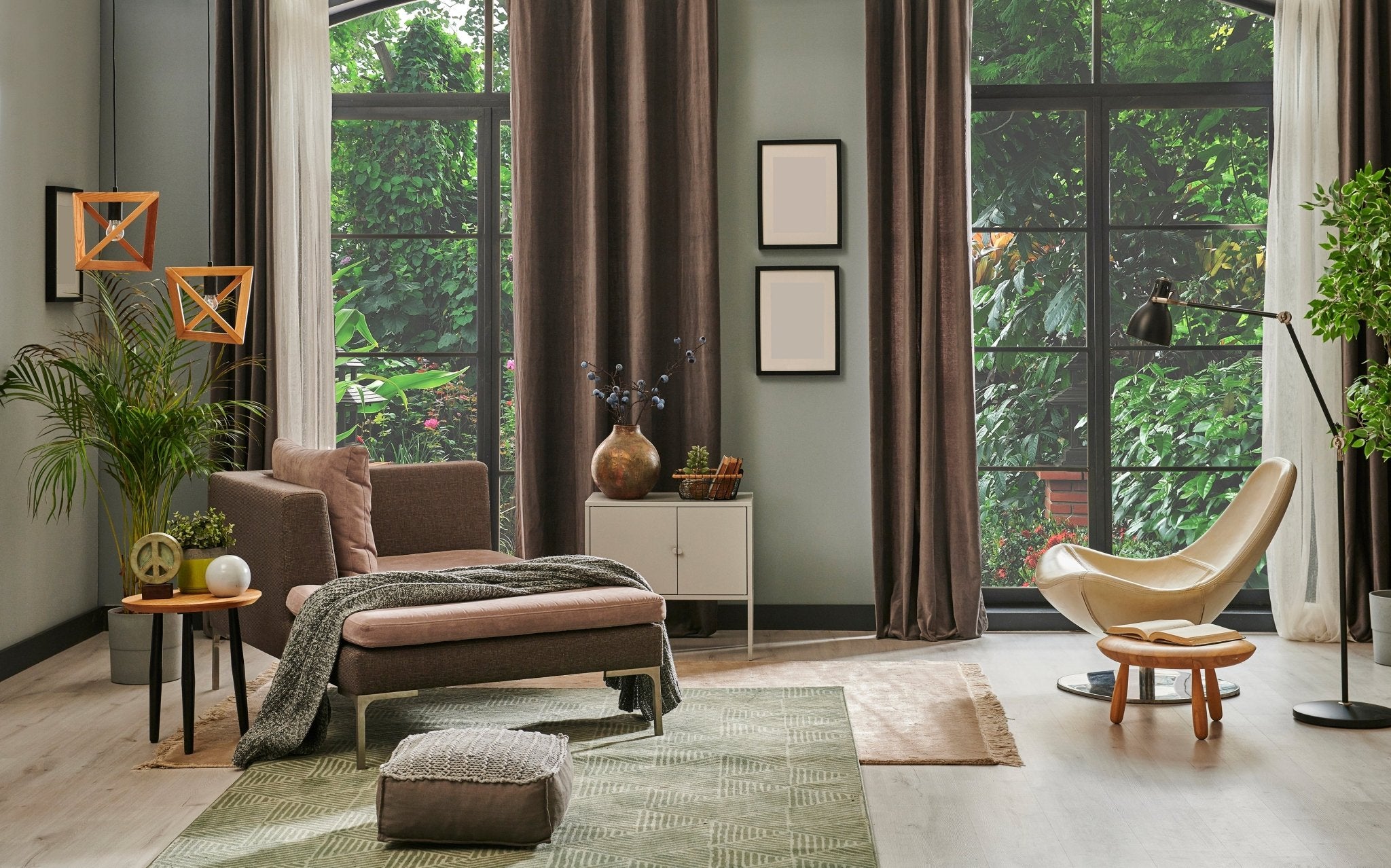Your Ultimate Handbook for Naming and Understanding Different Furniture Styles
Introduction
In the realm of interior design, your taste is as unique as your fingerprint. Picture this: You've meticulously curated the perfect Pinterest board showcasing an array of furniture styles that resonate with your aesthetic senses. The challenge? Naming these styles. Fear not! Our guide is here to unravel the mystique surrounding various furniture styles, both historical and contemporary.
Types of Furniture Styles: A Historical Odyssey
A Glimpse into Tradition
Jacobean (1600–1690): The English Early Renaissance Influence

The term "Jacobean" is often used for the distinctive styles of Jacobean arcitecture, visual arts, decorative arts, and literature which characterized that period.
William and Mary (1690–1735): Dutch and Chinese Fusion

The furniture in the William and Mary style placed a strong emphasis on unity, where every component contributed to the overall shape and appearance.
Queen Anne (1700–1755): Reign of William III Elegance

Queen Anne furniture is "somewhat smaller, lighter, and more comfortable than its predecessors," and examples in common use include "curving shapes, the cabriole leg, cushioned seats, wing-back chairs, and practical secretary desk-bookcase pieces."
Pennsylvania Dutch (1720–1830): American Germanic Fusion

Pennsylvania Dutch furniture is characterized by utilitarian designs, straight lines, and brightly painted surfaces. The sawbuck table, hope chest, and shank cupboard are all important furniture forms unique to this population.
Louis XVI (1760–1789): Marie Antionette's Neoclassical Elegance

Louis XVI furniture is more angular than earlier periods, with straight lines and geometric patterns. Restrained, short tapering legs replaced the cabriole style associated with Louis XV. Neoclassical influence already existed in France, known as goût grec or 'Greek taste.
Chippendale (1750–1790): The Diverse Influences of Thomas Chippendale

Chippendale furniture came to life from the perfect blend of Gothic, Rococo, and Chinese design influences. Gothic style was incorporated through elements such as pointed arches, s-shaped curves, and wooded lattice. Broad chair seats with interlacing ribbon backs were influenced by Rococo design.
Hepplewhite (1765-1800): George Hepplewhite's Neoclassical Marvel

George Hepplewhite (died 1786, London) English cabinetmaker and furniture designer whose name is associated with a graceful style of Neoclassicism, a movement he helped to formulate in the decorative arts.
Sheraton (1780–1820): George Sheraton's Refined Simplicity

In overall terms, Sheraton furniture embraces Neoclassical simplicity, but with a notably lighter and more elegant feel than the sturdier styles. This may have been a result of French influence on Sheraton's designs.
Federal (1780–1820): The Graceful Fusion of Hepplewhite and Sheraton

Federal furniture tends to emphasize basic geometric shapes, generally squares, circles, triangles, and rectangles. It is usually refined and well-crafted, with clean edges and straight lines.
American Empire (1800–1840): French-Inspired Ornamentation

American Empire furniture can be identified by its combination of restraint and embellishment. For example, a couch may feature scrollwork along its arms, back, and legs, and carved feet, but no additional pillars or cornucopia motifs.
Victorian (1840–1910): Romanticism in the Industrial Revolution

Victorian furniture is characterized by ornate carvings, dark woods, and heavy luxurious fabrics. Victorian furniture is traditionally made from mahogany, rosewood, or walnut, sometimes painted or gilded. Intricate carvings of natural images such as flowers, leaves, curling vines, ribbons, and bows adorned the pieces.
Arts and Craft (1880–1910): William Morris' Return to Craftsmanship
THE ART AND CRAFTS MOVEMENT 1880 to 1910. Those involved in the Arts and Crafts Movement, promoted simple items (furniture, ornaments etc...) manufactured through good craft techniques. It was a rebellion against the age of mass production. A return to traditional craft methods and 'romantic' forms of decoration.
Art Deco (1910–1939): Excessive Elegance and Geometric Precision

The term “Art Deco” is short for Arts Décoratifs and is derived from a 1925 Paris exhibition that showcased this new style to the world. Art deco furniture is characterized by symmetrical, clean, rectilinear lines. It combines traditional craftsmanship with modern machinery and materials.
Scandinavian Contemporary (1930–1950): Functionality, Minimalism, and Simplicity
Scandinavian design is a design movement characterized by simplicity, minimalism and functionality that emerged in the early 20th century, and subsequently flourished in the 1950s throughout the five Nordic countries: Denmark, Finland, Norway, Sweden, and Iceland.
Evolution into Modernity
Modern Furniture Styles: Where Artistry Meets Functionality

Mill Lane Mid-Century Modern 68” Tufted Sofa in Navy Fabric
Tufted detailing, an angled back, open arms and tapered legs create a refined silhouette. It can bring a cozy atmosphere to family rooms and an urban vibe to industrial lofts.
Antique: Timeless Beauty at Least a Century Old

Newton Antique Grey Storage Nightstand
With generous shelves, a drawer, and a pull-out drink tray, it offers convenient storage solutions. Complete with floor glides for added functionality.
American Colonial: A Fusion of Historical Styles

Thorne Buffet
Reinvent your style with a memorable piece. The Hewitt server is crafted of rubberwood solids and oak veneers and features a rustic oak finish and is accented with antique brass knob hardware. There are three full extension drawers with felt lining in all three that are flanked by two wood framed planked doors. Behind each door is one adjustable shelf. With vintage appeal, Hewitt is a casual, rustic style that never goes out of fashion.
Traditional: Graceful Ornamentation and Tapered Legs

Terrian Classic and Traditional Ash Walnut Finished Wood Queen Size Headboard
Vintage: Nostalgia in Artistic Flair

Two drawers provide the perfect storage for silverware and linens, and a lower shelf offers ample space to show off prized plates.
Rustic: Warmth and Coziness in Natural Materials

Granite Trace 5-Shelf Library Bookcase in Rustic Cedar
Introducing the Granite Trace® collection rustic bookcase, a charming addition that transforms your living area into a rural country oasis with its natural and sunbaked aesthetic. The warm and rich tones of the Rustic Cedar™ finish infuse this library bookcase with doors, providing a satisfying farmhouse glow that adds character to your space.
American Design: Solid Wood and Rich Finishes

Stone Brook Laptop Desk
Create a look all your own with Stone Brook Home Office. Mixed materials of the concrete with the saddle finish give Stone Brook a modern rustic feel. A unique desk and credenza/Hutch combination can satisfy your work habits as well as reflect your style
Retro: Modern Designs with a Nostalgic Twist

Baden Nightstand - Walnut Brown/ Rattan
Three drawers provide ample storage space for necessities, while the tabletop is ready for your daily use. It features sturdy, angled legs for secure support and a timeless charm. The Baden delivers stylish utility to vibrant households, creating a modern atmosphere.
Modern: Monochromatic Palettes and Contemporary Materials

Carter SideBoard - Walnut Brown Finished Wood & Black Metal
The doors open to reveal two spacious shelves, perfect for storing all your kitchen essentials. The legs are tapered for an elegant touch, and the metal accents add a touch of modern flair to complete the look. The Carter sideboard provides a fashionable blend of form and function.
Minimalism: The Art of "Less is More"

Annapolis Lift Top Coffee - Black Wengue Finish
The Annapolis Lift Top Coffee Table, mobility and style working together, this modern coffee table will be the protagonist when you receive your guests to enjoy a pleasant time in your living room.
Relaxed Modern: Minimalism with a Relaxed Vibe

Newport Sofa
Tailored yet cushy and comfortable, accent your living room or bedroom. This loveseat combines both classic and contemporary elements so that it can blend seamlessly into your space while adding a touch of luxury and sophistication.
Contemporary: Embracing Today's Aesthetics

Lennox writing desk
Contemporary furniture, finishes, materials, and fabrics equating to a classic, timeless design. Furniture lines are simple yet sophisticated, featuring either straight lines or rounded profiles. The transitional style is one of the most popular styles used to decorate today
Shabby Chic: Vintage Charm with Worn Elegance
Calypso Desk
The Calypso Collection combines an Shabby chic, weathered look with a warm, rustic, industrial feel. Its distressed look is trendy, popular and full of unique character. This desk embodies all these features with the weathered top and drawers, and has oversized copper finish metal legs with oversized hex bolts.
Casual Luxe: Refined Rustic with a Luxurious Feel

Nevena Glam Royal Blue Velvet Fabric Upholstered Gold-Finished Sofa
Constructed with quality plywood and stainless steel, the sofa is cushioned with high-density foam and upholstered in a vibrant royal blue velvet fabric. Its brushed gold base and detailed pleating on the back and inner arms add a touch of sophistication.
Urban Collective: A Fusion of Boho-Chic, Industrial, and Mid-Century Modern

Albert PU Leather Accent Chair
Making a statement with its chic lines, luxurious PU leather finish and sturdy beech wood construction, the Albert Accent Chair is the epitome of modern refinement. Its many available color and upholstery options make it truly customizable, allowing you to create an opulent atmosphere in any space. Ready to use upon arrival, the Albert is sure to be a showstopper.
Bohemian: Emphasis On Organic Elements and Nature

BOHO Coffee Table Solid Mango Wood and Pattern
Solid mango wood is a tropical hardwood. It on the one hand has the strength to bear the weight, and on the other hand stands the wear and tear of time. Additionally, the exquisite craftsmanship and beautiful wood grains make every piece of couch tables slightly different from the next.
Conclusion
In your journey through the diverse world of furniture styles, you've uncovered the rich tapestry that weaves together tradition and modernity. The key lies not just in recognizing these styles but in finding the ones that resonate with your personal taste. Remember, your home is a canvas, and the furniture styles you choose are the strokes that make it uniquely yours.
FAQs - Your Queries Answered
-
Q: How can I identify the specific era of antique furniture?
- A: Antique furniture can often be dated through unique details and ornate elements. Consult with experts for a precise era identification.
-
Q: What defines the "American Design" furniture style?
- A: American design features solid wood with distinctive grains, stunning finishes, and a blend of rich and rustic materials.
-
Q: Is shabby chic only about white-painted furniture?
- A: While white paint is common, shabby chic embraces worn elegance with rustic effects and neutral colors.
-
Q: What's the main distinction between modern and contemporary furniture?
- A: Modern furniture refers to the early 20th-century design movement, while contemporary furniture is a reflection of current design trends.
-
Q: How can I achieve a rustic furniture style in my home?
- A: Incorporate natural materials like timber, hide, cotton, and linen, along with warm accents, to achieve the rustic look.





